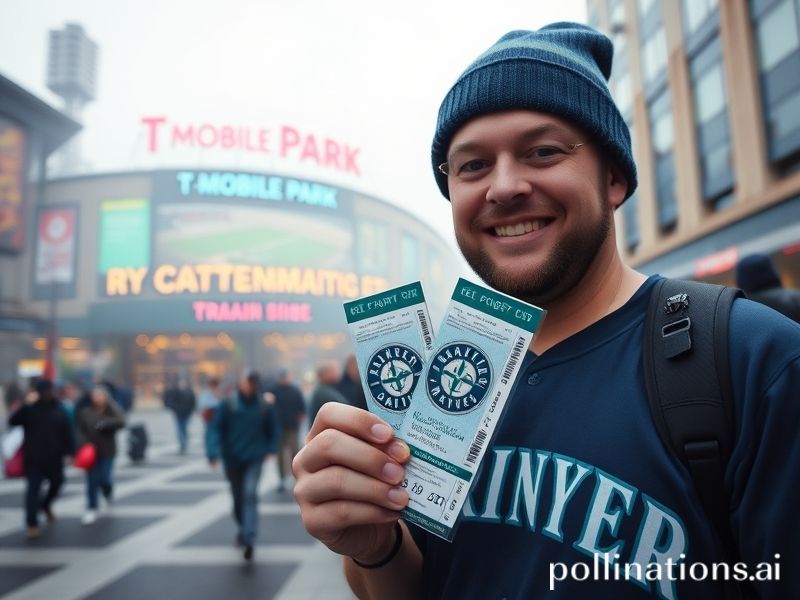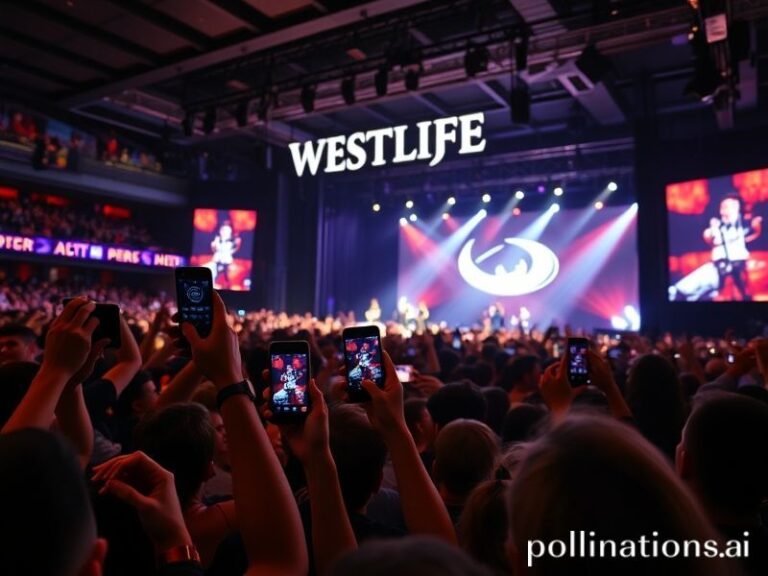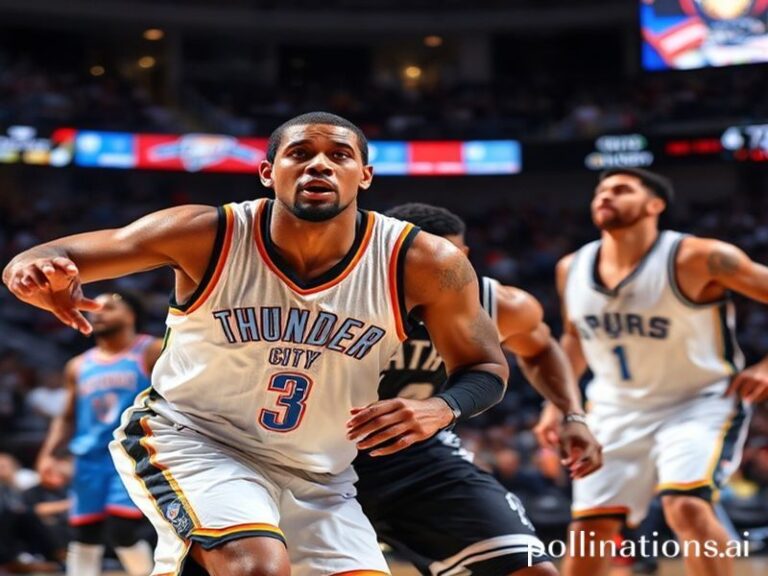Mariners Playoff Tickets: How Seattle’s Sudden Success Could Tilt Global Trade (and Your Vacation Budget)
Seattle, Washington – The Emerald City’s latest civic miracle isn’t a software patch or a green-energy IPO; it’s the sudden, baffling availability of Mariners playoff tickets. Yes, the same franchise that spent two decades perfecting the art of October abstinence has qualified for the postseason—twice in a row, if you can believe the medical journals. In offices from Singapore to São Paulo, currency traders are quietly re-balancing portfolios in case the Pacific Northwest’s collective serotonin spike crashes the global kombucha supply.
Let’s zoom out for the international reader who still thinks a “Mariner” is either a cocktail or an Italian cruise-ship disaster. This is the team whose last World Series trophy remains as hypothetical as ethical cobalt mining. Their renaissance has geopolitical echoes: the front office is run by a Canadian GM (solid trade diplomacy), the star center-fielder hails from the Dominican Republic (soft-power home run), and the pitching staff features a Japanese ace whose splitter breaks harder than most EU fiscal promises. Watching the Mariners succeed is basically a G7 summit in stirrup socks.
Ticket demand has, predictably, turned Seattle’s polite citizenry into knife-fighting mercenaries. A city that once apologized for making eye contact is now scalping ducats outside T-Mobile Park with the entrepreneurial zeal of Istanbul bazaar hawkers. SeatGeek reports that median resale prices have eclipsed €400—enough to bribe a mid-tier customs official in three different continents, or to buy two lukewarm IPAs inside the stadium. The pricing curve looks suspiciously like the yield on a Turkish lira bond: steep, vertiginous, and guaranteed to make someone cry.
Meanwhile, global supply-chain managers—those unsung heroes who keep the planet’s antidepressants and semiconductors flowing—are monitoring the situation with the grim fascination usually reserved for Ever Given traffic updates. A deep Mariners run could delay up to 8% of Amazon Prime deliveries as warehouse drones abandon their posts to watch Julio Rodríguez rob home runs. Analysts at Lloyd’s of London have quietly added “playoff-related productivity loss” to their actuarial tables, right between “rogue-wave meme stocks” and “spontaneous monarch abdication.”
For the European fan contemplating a trans-Atlantic pilgrimage, the math is brutal: round-trip airfare from Frankfurt, four nights in a Belltown micro-loft, and a single outfield ticket sum to roughly the GDP per capita of Moldova. But the existential upside is tremendous—where else can you witness 45,000 rain-jacketed souls scream in unison while munching on toasted grasshoppers, a protein snack marketed as both sustainable and, miraculously, on-brand for a franchise that has specialized in bugs for twenty-one straight seasons?
Asia is watching, too, though with characteristic skepticism. Tokyo sports talk shows frame the Mariners as a case study in delayed gratification, a concept so alien to their own Central League’s relentless trophy conveyor belt that it might as well be interpretive dance. Chinese state media, ever alert for metaphors of Western decline, has refrained from comment—partly because baseball airtime competes with the 24-hour Belt-and-Road infomercial, and partly because the Mariners’ payroll is still smaller than the average Shanghai kindergarten bribe.
Back in the concourses of T-Mobile Park, vendors hawk limited-edition “Refuse to Lose 2.0” scarves, blissfully ignoring the original slogan’s ironic fate: the team lost anyway, 22 years ago, in a manner so catastrophic that therapists still use it as a case study on learned helplessness. Yet here we are again, queuing beneath retractable-roof optimism, proving that hope is indeed non-perishable—like a Twinkie, or a congressional subpoena.
The broader significance? Simple. In a world where elections are delegitimized overnight and glaciers file for Chapter 11, the Mariners’ playoff berth offers a rare, renewable resource: collective delusion on a municipal scale. It’s cheaper than war, more inclusive than crypto, and—judging by the ticket lines—just as volatile. Should they actually reach the World Series, expect the Space Needle to be wrapped in a giant salmon-pink flag, and the global price of existential dread to dip by at least twelve basis points.
Until then, keep your VPNs tuned and your refresh buttons ready. The Mariners are playing for keeps, or at least until the next software update. And somewhere in a Geneva think-tank, an intern is drafting a white paper titled “Post-Season Baseball as Emerging Market Indicator.” Spoiler alert: the correlation is stronger than you think, and the volatility is already priced in.







